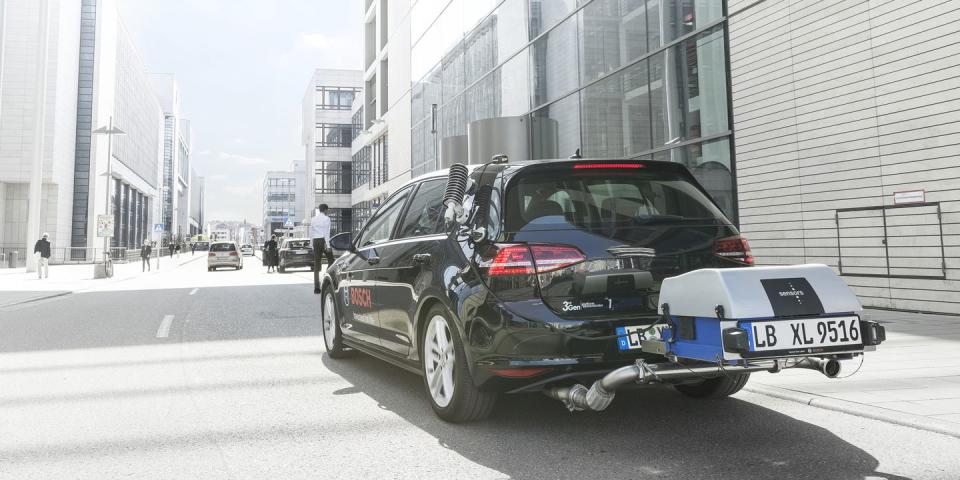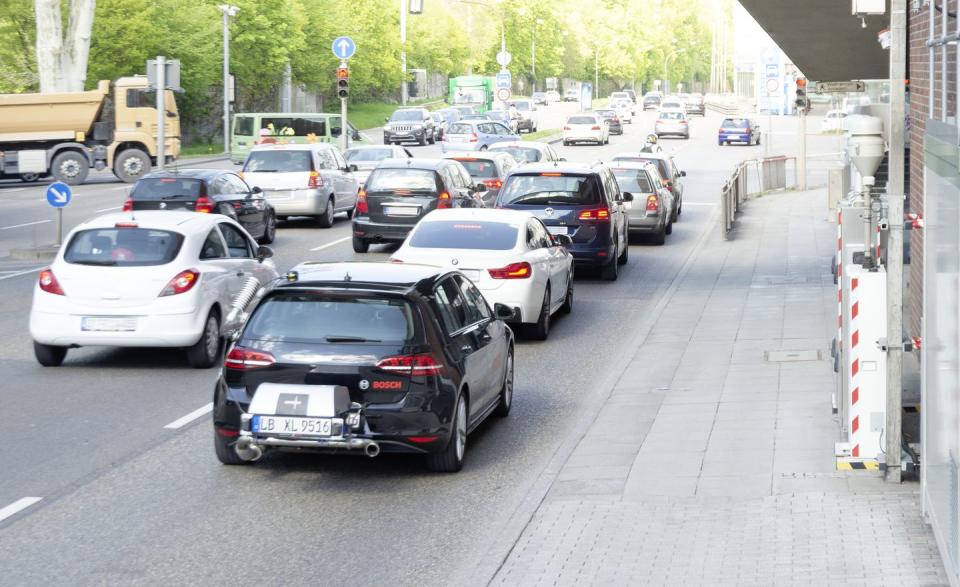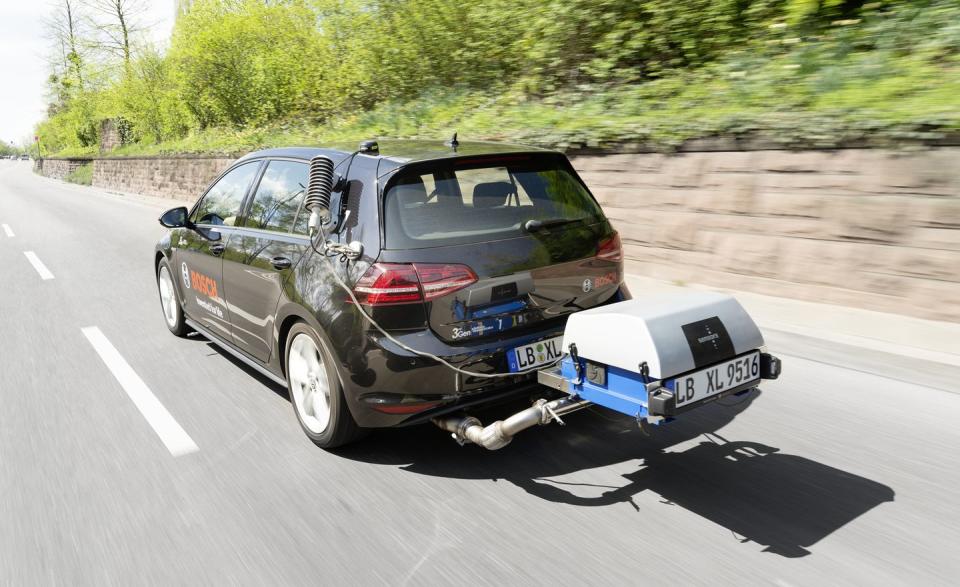Bosch Claims a Diesel-Emissions Breakthrough, But Is It Too Late?

Mammoth automotive supplier Bosch this past week dropped a bombshell, claiming it has new technology that would allow diesels to be effectively cleaner than electric vehicles. And Bosch also asserts that it can achieve that improvement without installing additional components or driving up costs versus current diesel technology.
“New developments from Bosch could enable vehicle manufacturers to reduce emissions of nitrogen oxides [NOx] so drastically that they already comply with future limits,” said the company, adding that diesels could have “almost no nitrogen-oxide emissions in the future thanks to optimized components.” The new systems don’t require 48-volt technology, and they won’t make diesels any more expensive because “the decisive advance comes from a new combination of existing technology.”
Bosch, which is the world’s largest supplier of auto parts including diesel components, hasn’t released a deeper dive into the technology yet. But at the core of the solution is a highly responsive airflow-management system and dynamic exhaust-gas recirculation-with adaptive (read: learning) control strategies that utilize artificial intelligence (AI). The system can most effectively reduce NOx levels when the exhaust gases are above 392 degrees Fahrenheit, so a new thermal-management system helps keep the temperature up when a car is creeping along in gridlock.
That avoids, Bosch says, spikes in NOx emissions from more aggressive real-world acceleration conditions. It says that once the AI system is incorporated, diesel emissions will no longer be an issue, and this new generation of diesel burners will have “almost zero impact on air quality.” So why the breakthrough now, with diesel widely considered to be on the wane? It was the possibility of diesel dying completely that spurred engineers to find “visible and measurable” solutions for the real world, Bosch CEO Volkmar Denner told the U.K. newspaper Financial Times.

The Product of Reform School
Ever since the start of Volkswagen’s emissions-cheating scandal, diesel has been under fire as regulators tighten rules that could legislate diesel automobiles out of existence, while consumers and environmental groups have voiced feelings of betrayal over the “clean diesel” promise that turned out to be a lie. Bosch was a supplier to Volkswagen, and at least one lawsuit has named it as an alleged co-conspirator, but the company said it did only what Volkswagen ordered.
Bosch now claims to be reformed. Under its new code, the company states that “the incorporation of functions that automatically detect test cycles is strictly forbidden,” that “test products must not be optimized for test conditions,” and that “everyday use of Bosch products should safeguard human life as well as conserve resources and protect the environment to the greatest possible extent”-with these core qualities taking precedence over customers’ [manufacturers’] wishes.
NOx Knockout
Bosch emphasizes that it hasn’t been cutting corners; it has been testing the system under the rigors of the new, tailpipe-based Real Driving Emissions test procedure that the EU has been using since last September. The new test hits a wide range of driving conditions and does not follow a predetermined load cycle. From it, the results Bosch claims are rather amazing: that it can reduce emissions from diesel engines in compact cars to just 13 milligrams of NOx per kilometer, compared with a claimed 40 mg/km for EVs (taking into account power generation based on the current European power-supply mix). That’s far lower than the tougher 120-mg/km limit for European diesels that goes into effect in 2020.
Cutting NOx levels so dramatically could be well received by the California Air Resources Board, which continues to take a tough stance on the importance of lowering NOx levels. NOx has been linked with asthma and respiratory issues and leads to the formation of ozone and the smallest particulate matter in the exhaust stream, allegedly related to cardiovascular events.
But Is It Too Late?
Even the possibility of a diesel that’s cleaner than electric vehicles might not be enough to turn the anti-diesel tide, however. Many automakers have indicated that they’re moving on, cutting diesel engines from their lineups and switching instead toward electrification. At this point, decisions have been made, courses have been plotted, and some massive investments and commitments have been made toward electrification and the battery-supply chain.

Bosch’s claim of no increased cost is good news because diesels already are at a disadvantage compared to gasoline engines, with some studies estimating that using a diesel engine adds $1500 to $2000 to the total vehicle cost versus an equivalent gasoline engine. Meanwhile, Bloomberg New Energy Finance, citing falling battery costs and economies of scale, expects battery-electric vehicles to reach cost parity with comparable gasoline models by 2025.
Part of an Electric Future?
Bosch’s technology could perhaps permit diesels to play a part in an electric future-in hybrid powertrains. And not all manufacturers are set on purging diesels from their lineups entirely. At the Geneva auto show earlier this spring, Mercedes-Benz’s development chief for passenger cars, Ola Källenius, pointing to the upcoming C-Class diesel plug-in hybrid, declared that “with the right technology, the diesel has a future.” Improving it is better than banning it, he argued; this might be just the kind of improvement that’s needed to keep diesel viable.
You can bet there will be a lot of independent testing of Bosch’s claims. And if they pass muster, maybe diesel is not dead yet.
You Might Also Like

 Yahoo Autos
Yahoo Autos 